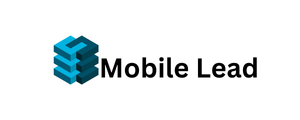In the world of digital marketing and telecommunications, access to valid and updated phone number lists can make or break your outreach strategy. Many businesses look to third-party providers for such lists, especially when entering new markets like El Salvador. But how reliable are these third-party El Salvador phone number lists? Let’s explore the risks, benefits, and key factors to consider.
The Appeal of Third-Party El Salvador Phone Number Lists
Purchasing ready-made contact lists can seem like a time-saving solution for companies that want to reach customers quickly. Third-party phone el-salvador phone number list number lists are often marketed as a shortcut to customer engagement, and in markets like El Salvador—where local data collection might be challenging—they offer some obvious benefits.
Benefits of Third-Party Lists
Speed and Scale: Companies can immediately begin campaigns without having to gather contacts organically.
Market Entry: For international businesses, these lists provide a way to explore a new region without much local presence.
Cost-Effectiveness: Compared to how do you segment a phone number list? building a list from scratch, third-party lists can be cheaper in the short term.
However, these advantages are only valuable if the list is accurate and compliant with local regulations.
Risks and Limitations of Using Third-Party Lists
While the idea of instant access to thousands of contacts is tempting, there are significant downsides to using third-party El Salvador phone number lists. Businesses often face problems with poor data quality, legal complications, and low customer engagement.
Common Issues Found in Third-Party Lists
Outdated or Incorrect Numbers: Many lists are compiled once and resold repeatedly, meaning the information may no longer be current.
Low Engagement Rates: If users whatsapp phone number never opted in to receive communication, they’re less likely to respond positively.
Reputation Damage: Cold-calling or messaging uninterested users can harm your brand’s image in the El Salvadoran market.
Legal and Compliance Concerns
Under El Salvador’s data privacy frameworks and international standards like the General Data Protection Regulation (GDPR), using unverified or non-consensual data can result in serious legal consequences. Companies should ask providers whether their lists are opt-in and compliant with local laws.
How to Assess the Reliability of a Third-Party List
If you decide to use a third-party provider, it’s important to thoroughly evaluate their reliability. Don’t rely on vague claims—ask for proof.
Key Factors to Check
1. Source of Data
Make sure the vendor can clearly explain where the phone numbers came from. Ethical providers gather data through lead forms, surveys, or customer sign-ups.
2. Opt-In Verification
Are the users on the list aware that their number will be used for marketing purposes? This is not just a best practice—it’s essential for legal compliance.
3. Update Frequency
Good data providers regularly update their lists. If a vendor can’t tell you when the list was last verified, that’s a red flag.
4. Sample Testing
Ask for a small sample list to test. Run a limited campaign and monitor the results before committing to a full purchase.
Final Thoughts: Should You Trust Third-Party Lists?
Third-party El Salvador phone number lists can be helpful, but they come with risks that should not be ignored. Businesses must weigh the convenience of fast access against the potential costs of poor data quality or legal trouble. If you choose to go this route, only work with reputable vendors who can offer transparency, compliance, and recent verification.
A better long-term strategy may be to build your own list through ethical lead-generation methods. While it takes more time, it ensures your contacts are engaged and legally obtained—making your marketing efforts in El Salvador more effective and sustainable.
